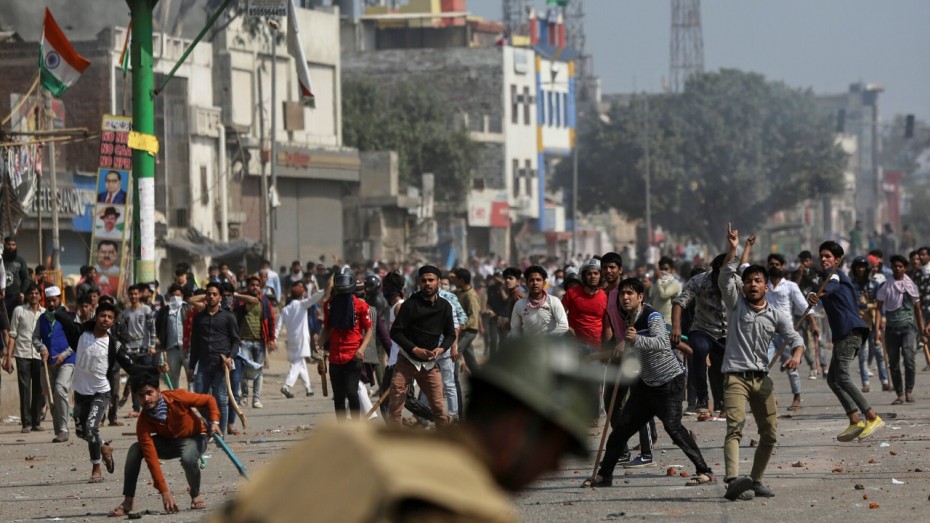Religious freedom is a fundamental human right that gives human life dignity and meaning and enable them to think, act and express what they deeply believe. It is almost recognized in every Constitution and declarations of the world and it is considered as a birth right of every individual as a human being. It is an architecture that allows diverse faiths to coexist. However, when religious freedom is granted to the individuals, the societies began to flourish, tension and strife automatically goes down. Therefore, it is states responsibility to protect religious liberty and conscience so that societies enjoy more benefits of health, prosperity, harmony and stability. Article 25 of Indian Constitution also guarantees the freedom of conscience, the freedom to profess, practice and propagate religion to all citizens whereas article 29 stress on the protection of minorities interest. Before independence even Indian National Congress Charter give protection to religious freedom and human rights but it is trigger again and again by RSS inspired Hindu majority against the minority particularly Muslims. Unfortunately, religious freedom has become just a part of the constitution and have not been implemented in Indian state under the leadership of Modi.
Historically, the anti-Muslims violence are politically motivated and a part of the electoral strategy of mainstream political parties who are associated with Hindu nationalism like the Bharatiya Janata Party (political wing of RSS). Rashtriya Swayamsevak Sangh (RSS) was founded in 1925 by Keshav Baliram Hedgewaras part of the movement against British rule and as a response to rioting between Hindus and Muslims. The RSS has played a key role in the Hindu nationalist movement. In the past at various times it has been banned by the Indian government especially Congress Party, for its role in communal violence. Some of the major political leaders of India’s Bharatiya Janata Party are members of the RSS. Few examples of anti-Muslims riots are 1964 Calcutta riots, 1983 Nellie massacre, 1969 to 1989 Gujarat riots, 1987 Hashimpura massacre, 1989 Bhagalpur riots, 1992 Bombay riots, 2002 Gujarat violence, 2013 Muzaffarnagar riots and 2020 Delhi riots.
Contemporary, in the past ten days once again the anti-Muslim arson and attacks have ascended across India. Communal violence broke out in Delhi’s Jahangirpuri when Hindutva activists participating in a procession to mark a religious Hindu festival, Hanuman Jayanti, reportedly attempted to hoist a saffron flag in front of a local mosque. Clashes started with stone throwing between Hindu and Muslim groups during religious processions and Hindus demolished a number of properties belonging to Muslims. Various channels reported a large-scale clashes between Hindus and Muslims in six states including Madhya Pradesh, Jharkhand, Gujarat, Goa, West-Bengal and on April 10, a day of celebration marking the Hindu god Ram’s birthday. However, the incidents are often planned. Processions through Muslim neighborhoods, hoisting flags or shouting religious slogans or prayers near mosques is often aimed at instigating Muslims and provoking violence. It is not rare and new in today’s India.
Furthermore, on April 20, bulldozers rolled into the north Delhi neighborhood of Jahangirpuri on the orders of local authorities. The bulldozers razed several buildings in the area, including the entrance gate of a mosque as well as homes and shops of Muslims. While local police and political officials claimed that the structures were being bulldozed as they were illegal, authorities stopped a bulldozer from mowing down the entrance of a Hindu temple that was situated just 50 meters from the mosque. It is evident that the bulldozing activity was aimed at intimidating Muslims only, destroying their homes, livelihoods, and places of worship. It is part of a systematic campaign by Hindutva activists to wipe out Muslims and their way of life. Under what law the government of has demolished houses of the Muslim community? It clearly highlights the biased attitude towards Muslim minority.
In May 2022, Modi will complete eight years as India’s prime minister. According to an independent hate crime tracker over 400 hate crimes were carried out against Muslims in India in the last four years. Two organizations Vishwa Hindu Parishad and the Bajrang Dal linked to the BJP that are at the forefront of the anti-Muslim violence. Under the garb of celebrating Hindu festivals, these organizations carry out organized violence that is well-planned and coordinated targeting Muslims. During the recent festivals, these Hindutva outfits demanded and in many places enforced a ban on activities such as eating meat that are part of Muslim culture. This wiping out of Muslims and their way of life has left the community dispirited. Nothing is done on the part of state to control anti-Muslims riots. State is neutral and silent and at a state level its crime to be quiet and neutral.
Keeping in view of the above discriminatory attitude towards minorities particularly Indian Muslims, the current BJP led government creates resentment at mass level. If India continue with this course, there is a chance India might split into piece if not now but in the future. This will lead more resentment among the Muslim against their Indian majority. There are rising voices of resentment among the minorities off and on without resorting to particle violence. However, if the Modi government continued its discriminatory policies against minorities, it might result in destruction, polarization of the Indian society on communal lines and more important everlasting violence at mass level.
* The writer is an Islamabad based analyst and can be reached at sarahamidkhan21dec@gmail.com.





